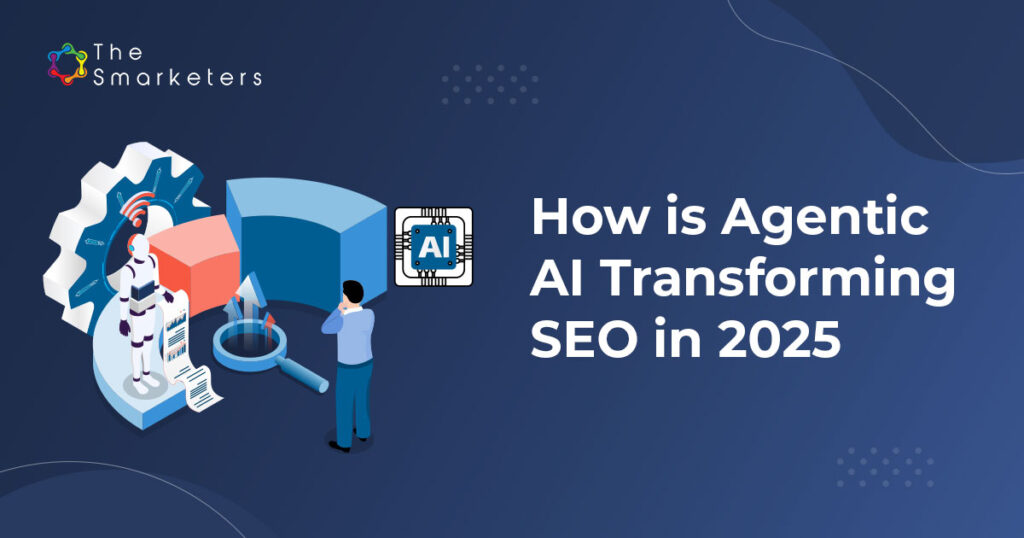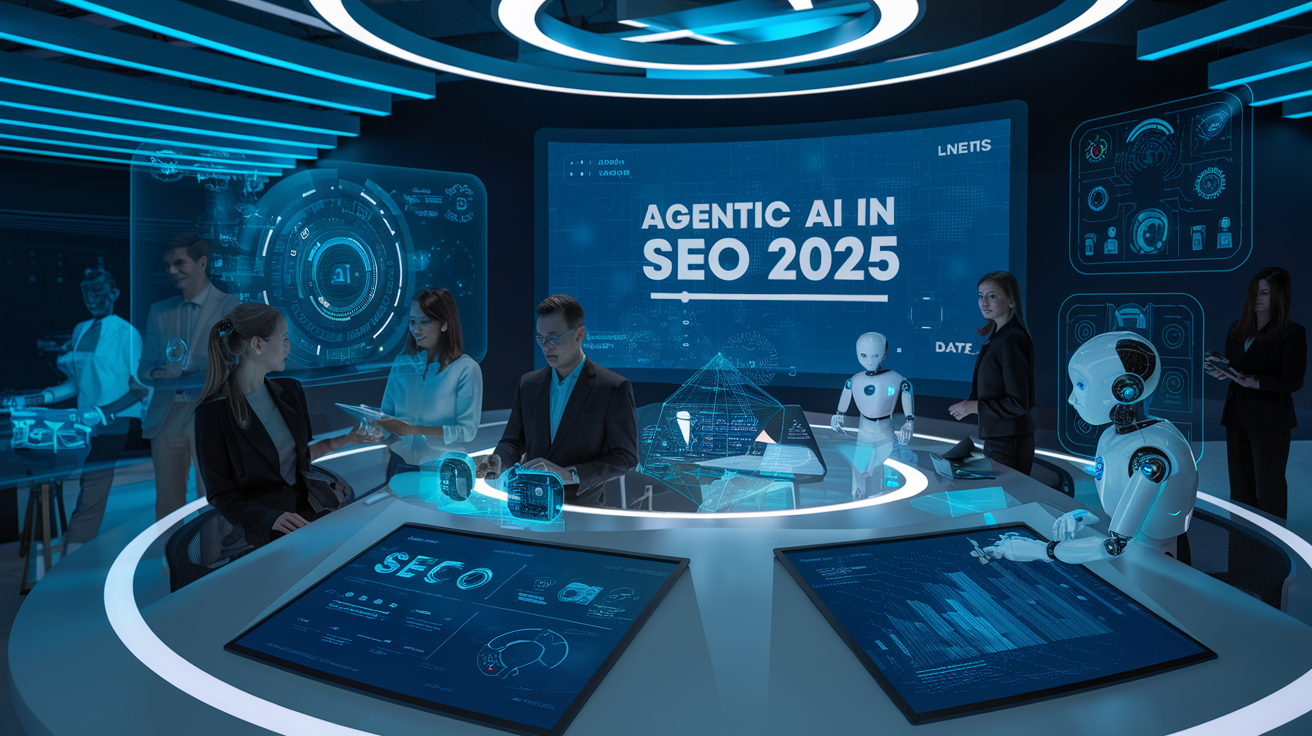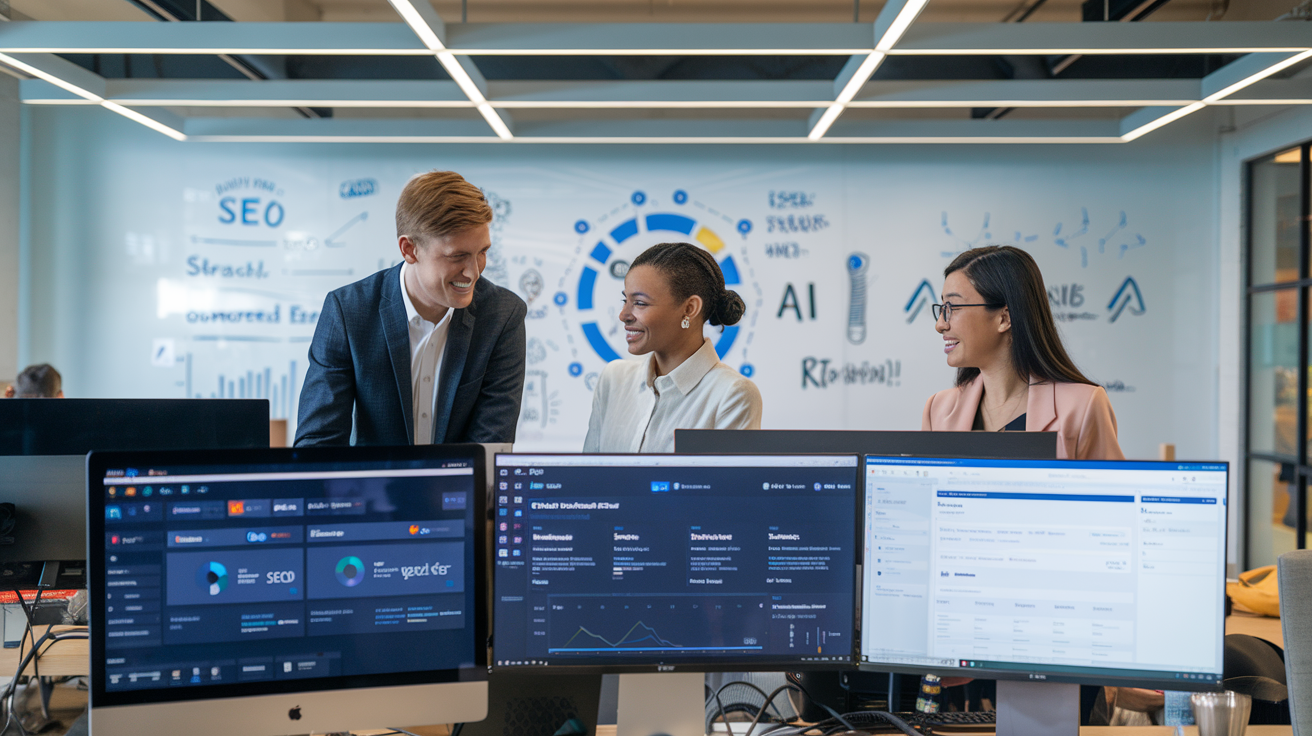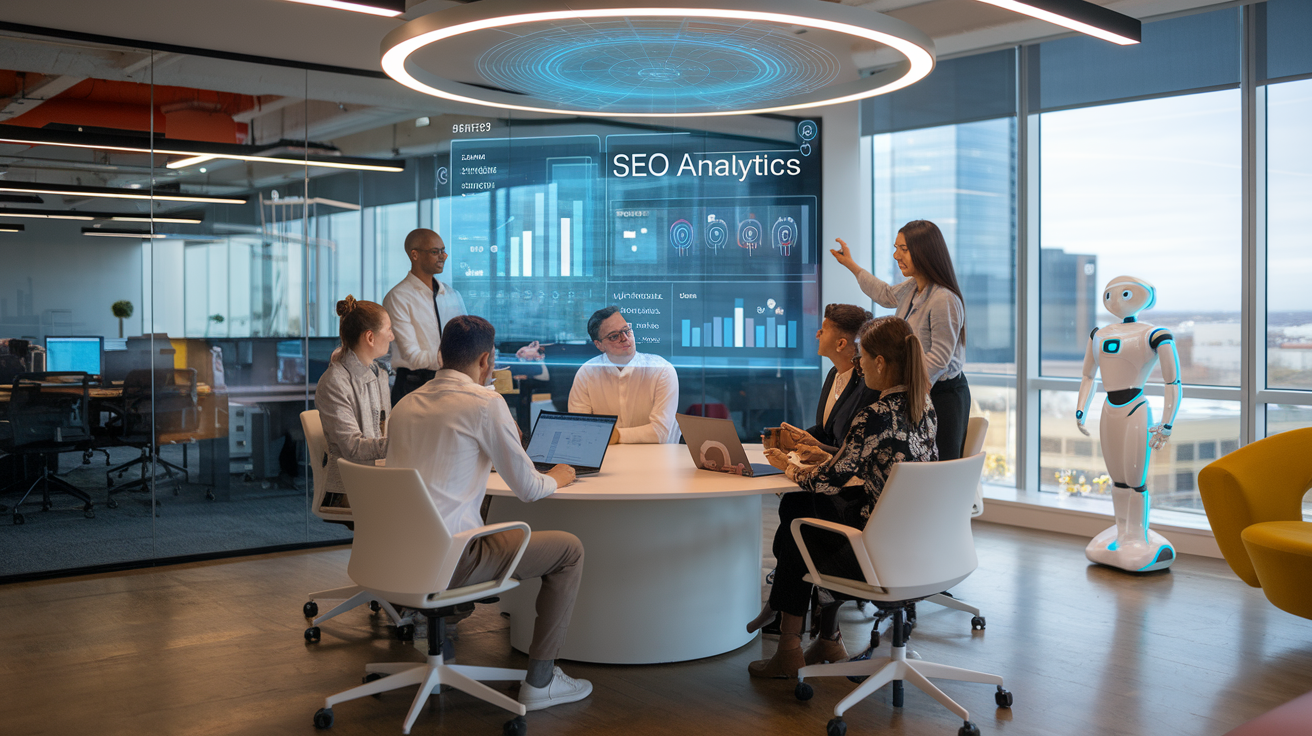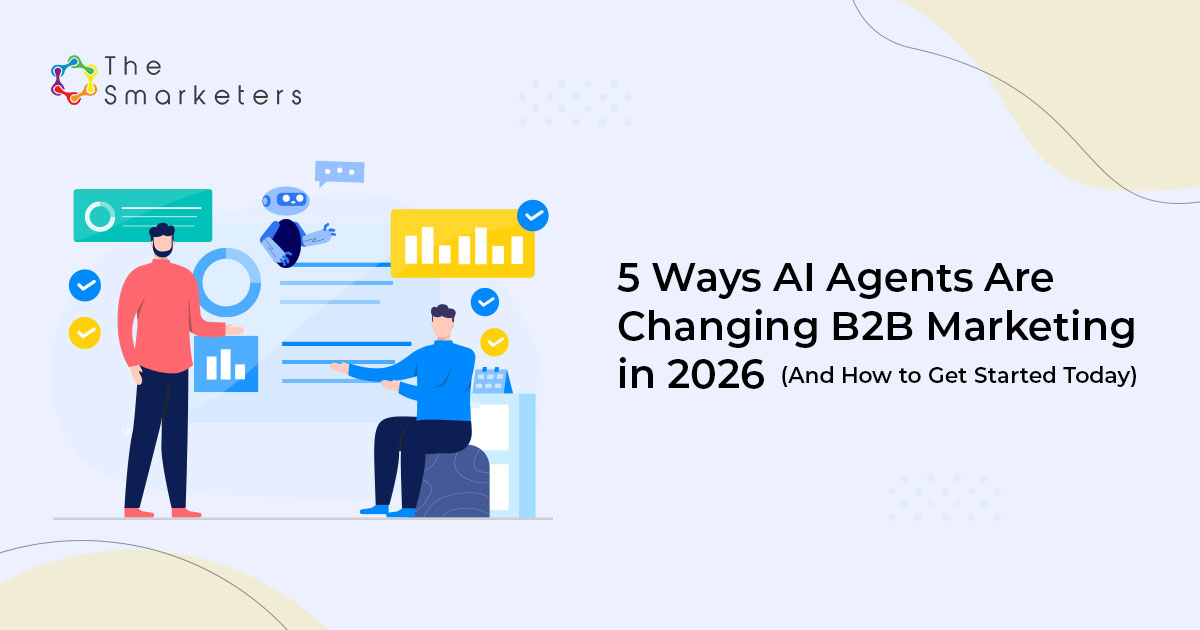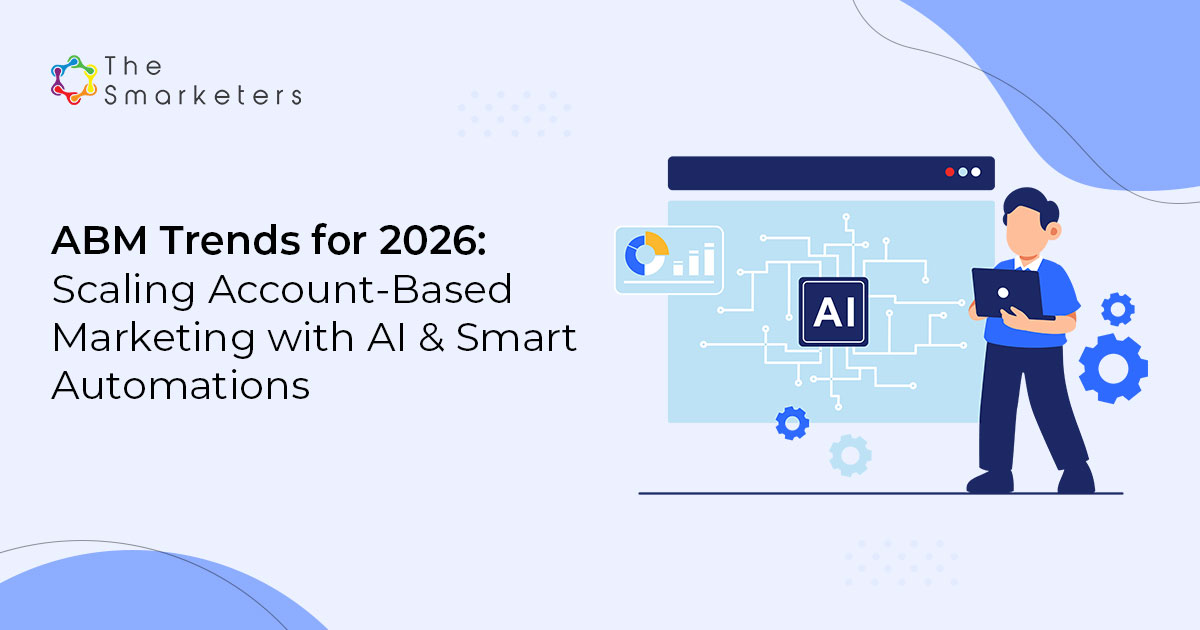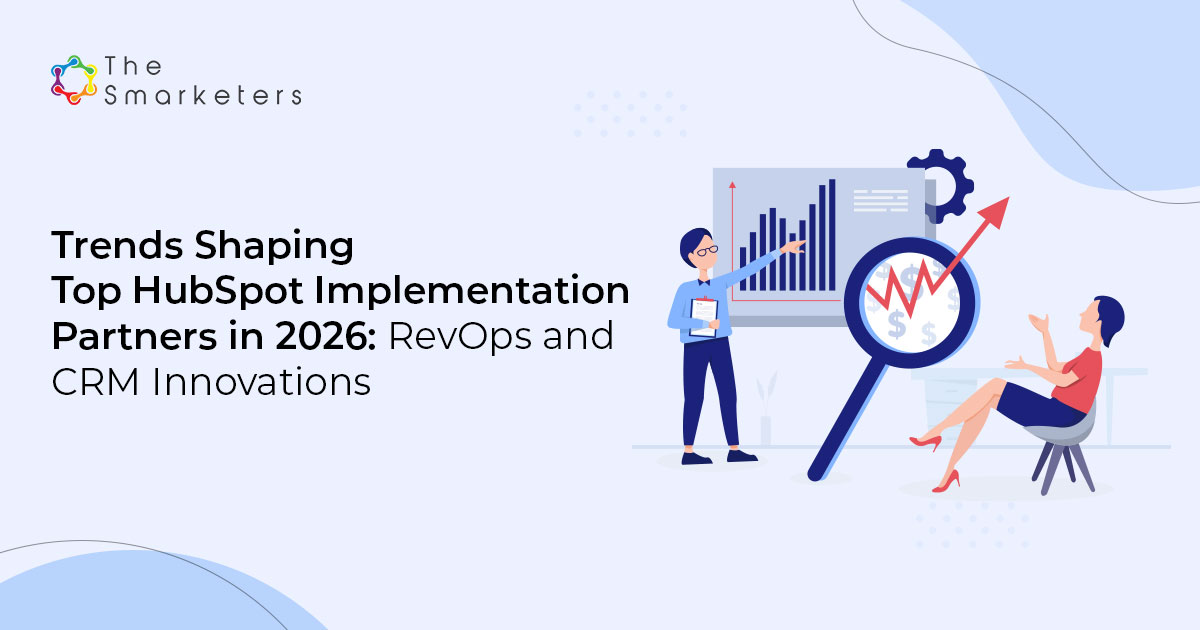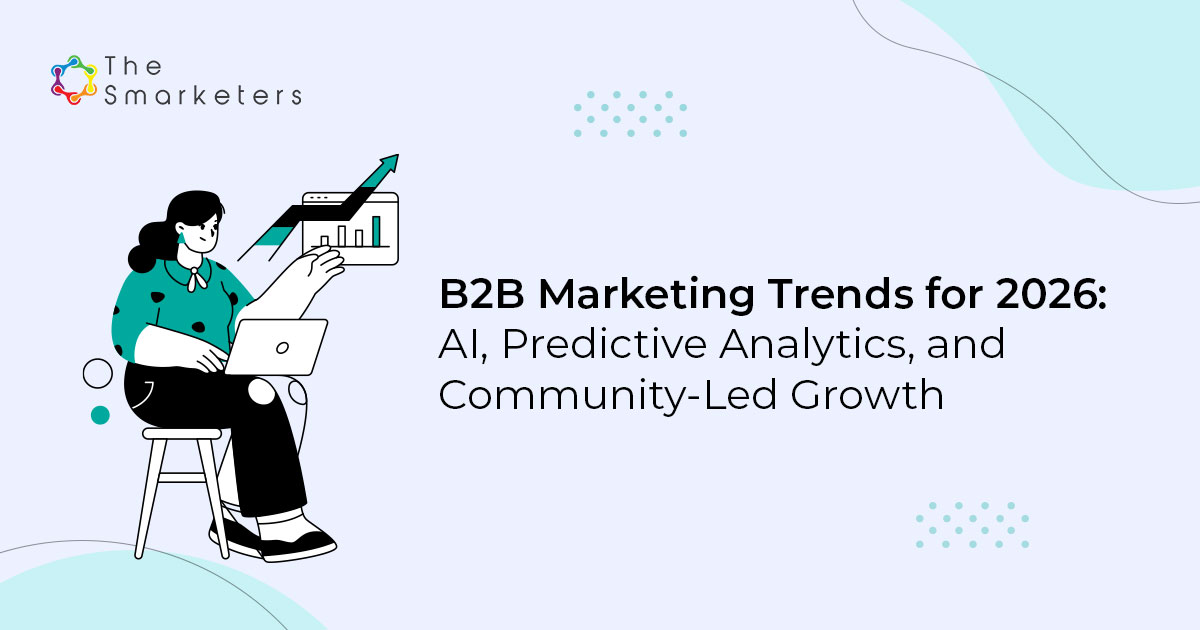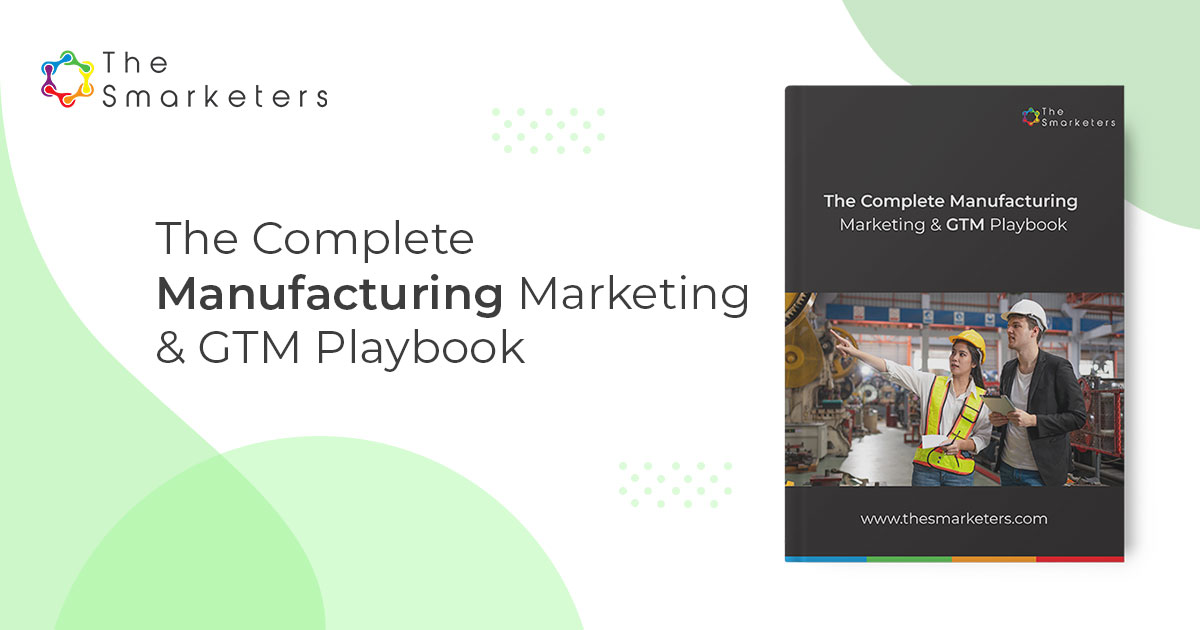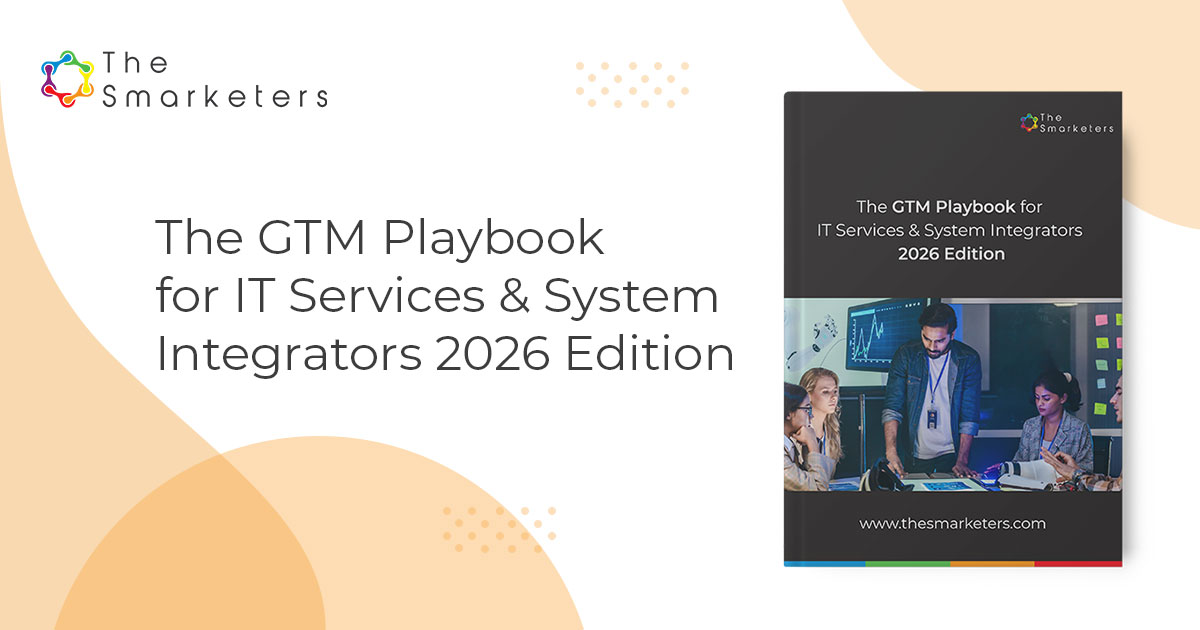Table of Contents
Did you know that SEO practices have evolved dramatically over the past two decades? From simple keyword stuffing in the early 2000s to complex algorithms in the 2010s, SEO has come a long way. But now, in 2025, we’re witnessing a revolutionary shift that’s changing the game entirely: Agentic AI.
Remember the days when SEO meant hours of manual research, endless data analysis, and constant strategy adjustments? Those days are fading fast. Agentic AI is transforming the SEO landscape, offering autonomous optimization that adapts in real-time to current data and trends. It’s not just about following predefined routines anymore; it’s about AI that can think, learn, and act on its own to achieve your SEO goals.
Curious about how this AI revolution can skyrocket your search rankings and drive more traffic to your site? In this post, we’ll dive deep into the world of Agentic AI in SEO. You’ll discover its key capabilities, explore real-world success stories, and learn how to implement this cutting-edge technology for your own SEO success. Get ready to unlock the future of search engine optimization!
Understanding Agentic AI in SEO
A. Definition and key features of Agentic AI
Agentic AI in SEO represents a significant leap forward in how you optimize your online presence. This advanced AI system operates autonomously, making strategic decisions and proactively engaging with the digital environment to enhance your website’s visibility. You can think of Agentic AI as a chess master for your SEO strategy, constantly analyzing the board (your website and the search landscape) and making moves to improve your position.
Key features of Agentic AI in SEO include:
- Autonomous operation
- Real-time data analysis
- Adaptive strategy implementation
- Proactive engagement with search algorithms
- Enhanced user experience optimization
Agentic AI leverages structured knowledge graphs, enabling it to retrieve and apply contextually relevant information crucial for effective SEO. This capability allows you to:
- Identify content gaps in your strategy
- Generate precise keyword suggestions
- Enhance user experience through targeted optimizations
Unlike traditional AI systems, Agentic AI in SEO doesn’t just process data; it acts on it. You’ll find that this AI can make decisions and implement changes to your SEO strategy without constant human intervention, allowing you to focus on higher-level strategic planning.
B. Comparison with traditional AI in SEO
To understand the transformative power of Agentic AI, you need to compare it with traditional AI approaches in SEO. Here’s a breakdown of the key differences:
| Feature | Traditional AI in SEO | Agentic AI in SEO |
|---|---|---|
| Data Processing | Based on pre-trained models | Uses real-time, domain-specific data |
| Decision Making | Requires human interpretation | Autonomous decision-making |
| Adaptability | Limited to programmed parameters | Adapts to evolving algorithms |
| Content Optimization | Focuses on keyword density | Considers context and user intent |
| User Experience | Generic improvements | Personalized, dynamic enhancements |
| Data Structure | Relies on traditional databases | Utilizes knowledge graphs |
| Response to Changes | Reactive | Proactive |
Traditional AI in SEO often relies on Generative Pre-trained Transformers (GPTs) that generate coherent language but lack real-time integration of domain-specific data. You might find that these systems are good at producing content but fall short when it comes to strategic SEO decisions.
In contrast, Agentic AI utilizes structured knowledge graphs, allowing you to retrieve and apply information that’s precisely relevant to your SEO needs. This means you’re not just getting generic suggestions but tailored strategies that align with your specific goals and market position.
The use of graph databases over traditional SQL databases is another significant advantage you’ll notice with Agentic AI. These databases handle complex relationships more efficiently, enriching the data available for AI applications. This translates to more nuanced and effective SEO strategies for your website.
C. Evolution from keyword stuffing to autonomous optimization
The journey from keyword stuffing to autonomous optimization marks a significant evolution in SEO practices, and you’re now at the forefront of this change with Agentic AI.
Here’s how SEO has evolved:
- Keyword Stuffing Era: You simply crammed as many keywords as possible into your content.
- Content Quality Focus: Search engines began prioritizing well-written, informative content.
- User Intent Optimization: You started tailoring content to match what users were actually searching for.
- Mobile and Local SEO: Optimization expanded to include device-specific and location-based factors.
- AI-Assisted SEO: Basic AI tools began helping with keyword research and content suggestions.
- Agentic AI Optimization: Now, AI autonomously manages and implements complex SEO strategies.
With Agentic AI, you’re moving beyond simple keyword optimization. This system understands the intricate relationships between various SEO factors and can make decisions based on a holistic view of your digital presence.
You’ll find that Agentic AI can:
- Analyze user behavior patterns to predict content needs
- Automatically adjust your website’s structure for optimal crawling
- Dynamically update meta tags and schema markup
- Suggest and implement content updates based on current search trends
- Optimize internal linking structures in real-time
This autonomous optimization means you’re no longer reacting to SEO changes but staying ahead of them. Your SEO strategy becomes a living, breathing entity that evolves with the search landscape.
The implementation of Agentic AI also addresses the growing complexity of search algorithms. As search engines become more sophisticated, manual SEO management becomes increasingly challenging. You’ll appreciate how Agentic AI can interpret and respond to algorithm updates faster than any human team could.
Moreover, this evolution aligns with the concept of “Agent Optimization” discussed in recent literature. You’re not just optimizing for search engines anymore; you’re optimizing for AI agents that mediate user interactions with content. This means structuring your data and content in ways that are not only search engine friendly but also “agent-friendly.”
As you adapt to this new paradigm, you’ll need to focus on:
- Creating well-structured data that’s easily accessible to AI agents
- Optimizing your code for seamless AI interaction
- Developing clear, agent-friendly content that conveys information efficiently
With Agentic AI, you’re not just keeping up with SEO trends; you’re setting them. Your website becomes a dynamic entity, constantly evolving to meet the needs of both users and search engines.
Now that we have covered the fundamental aspects of Agentic AI in SEO, including its definition, key features, comparison with traditional AI, and the evolution of SEO practices, you’re well-equipped to explore the practical applications of this technology. In the next section, “Key Capabilities of Agentic AI in SEO,” we’ll delve into the specific ways this advanced AI can transform your SEO strategy and drive tangible results for your online presence.
Key Capabilities of Agentic AI in SEO
Now that we’ve explored the concept of Agentic AI in SEO, let’s delve into its key capabilities that are transforming the landscape of search engine optimization in 2025. These capabilities are revolutionizing how you approach SEO strategies and implementation.
A. Advanced keyword research and real-time strategy adjustments
In the realm of Agentic AI SEO, you’ll find that keyword research has evolved into a sophisticated, dynamic process. Gone are the days of manual keyword analysis and static strategies. With AI-powered SEO tools, you’re now equipped with advanced capabilities that can significantly enhance your keyword research and strategy adjustments in real-time.
Automated Keyword Discovery and Analysis
You’ll benefit from AI’s ability to analyze vast datasets rapidly, uncovering competitor keywords and assessing their performance. This automated process allows you to target relevant topics more effectively than ever before. For instance, tools like Semrush, with its AI dashboard Copilot, provide you with customized SEO insights that streamline your analysis process.
Here’s how you can leverage these advanced capabilities:
- Comprehensive competitor analysis: AI tools scan your competitors’ websites, identifying high-performing keywords you might have overlooked.
- Trend prediction: By analyzing search patterns and user behavior, AI can predict upcoming keyword trends, allowing you to stay ahead of the curve.
- Long-tail keyword identification: AI excels at discovering long-tail keywords that have lower competition but high conversion potential.
- Semantic keyword clustering: You can group related keywords more effectively, ensuring your content covers topics comprehensively.
Real-Time Strategy Adjustments
One of the most powerful aspects of Agentic AI in SEO is its ability to make real-time adjustments to your strategies. As you continuously monitor website performance and user behavior, AI tools enable you to respond proactively to trends and performance fluctuations.
Here’s how real-time strategy adjustments work in practice:
- Performance monitoring: AI tools like Alli AI constantly track your website’s performance, alerting you to any significant changes in rankings or traffic.
- Automated audits: Regular automated site audits identify technical issues that could be impacting your SEO performance, allowing for quick fixes.
- Algorithm update adaptation: As search engine algorithms evolve, AI tools analyze the changes and suggest strategy adjustments to maintain or improve your rankings.
- Content optimization recommendations: Based on real-time performance data, AI can suggest updates to existing content to improve its relevance and engagement.
By leveraging these advanced keyword research and real-time adjustment capabilities, you’re positioning yourself at the forefront of SEO strategy in 2025. You’re no longer reactive but proactive in your approach, constantly fine-tuning your strategy for optimal performance.
B. Personalized user experiences
In 2025, personalization is not just a nice-to-have feature; it’s a crucial component of successful SEO strategies. Agentic AI is at the forefront of delivering highly personalized user experiences that can significantly impact your search rankings and user engagement.
AI-Driven Content Personalization
You can now use AI to tailor your content to individual user preferences and behaviors. This level of personalization goes beyond simple demographic targeting, diving deep into user intent and context.
Here’s how AI enhances content personalization:
- User behavior analysis: AI algorithms analyze user interactions with your site, including browsing patterns, click-through rates, and time spent on pages.
- Intent prediction: Based on search queries and browsing history, AI predicts user intent, allowing you to serve the most relevant content.
- Dynamic content delivery: You can automatically adjust content layout, recommendations, and even tone based on individual user preferences.
- Personalized search results: Within your website, AI can personalize internal search results, improving user experience and increasing engagement.
Voice Search Optimization
With the rise of voice-activated devices, optimizing for voice search has become crucial. Agentic AI helps you adapt your SEO strategy to cater to this growing trend.
Here’s how you can leverage AI for voice search optimization:
- Natural language processing: AI tools like Yext use advanced NLP to understand and optimize for conversational queries typical in voice searches.
- Featured snippet optimization: AI identifies opportunities for your content to appear in featured snippets, which are often used for voice search results.
- Local SEO enhancement: For businesses with physical locations, AI tools like Localo can optimize your Google Business Profile for voice-activated local searches.
User Journey Mapping
Agentic AI enables you to map and optimize the entire user journey, from initial search to conversion. This holistic approach ensures a seamless, personalized experience at every touchpoint.
Here’s how AI assists in user journey mapping:
- Multi-channel tracking: AI tools monitor user interactions across various channels, providing a comprehensive view of the customer journey.
- Predictive analysis: By analyzing past behavior patterns, AI predicts future actions, allowing you to proactively meet user needs.
- Personalized CTAs: Based on user journey analysis, AI can suggest and implement personalized calls-to-action to improve conversion rates.
- Content recommendation engines: AI-powered recommendation systems suggest relevant content to users based on their journey stage and interests.
By implementing these personalized user experience strategies powered by Agentic AI, you’re not just improving your SEO performance; you’re creating a more engaging, user-centric website that keeps visitors coming back for more.
C. Technical SEO implementation and backlink analysis
In 2025, technical SEO has become increasingly complex, but Agentic AI is here to simplify and enhance your approach. From automated site audits to sophisticated backlink analysis, AI tools are revolutionizing how you handle the technical aspects of SEO.
Automated Technical Audits
Gone are the days of manual, time-consuming site audits. With Agentic AI, you can now automate this process, ensuring your website’s technical health is always at its peak.
Here’s how AI enhances technical audits:
- Continuous monitoring: AI tools constantly scan your website, identifying issues in real-time rather than during periodic manual checks.
- Comprehensive analysis: From site speed to mobile responsiveness, AI covers all aspects of technical SEO in its audits.
- Prioritized recommendations: AI doesn’t just identify issues; it prioritizes them based on their impact on your SEO performance.
- Automated fixes: For certain technical issues, AI can implement fixes automatically, saving you time and effort.
Schema Markup Optimization
Structured data is crucial for helping search engines understand your content. Agentic AI takes schema markup to the next level:
- Automated schema generation: AI tools can analyze your content and automatically generate appropriate schema markup.
- Schema validation: AI ensures your schema is correctly implemented and up to date with the latest standards.
- Rich snippet optimization: By analyzing SERPs in your niche, AI suggests schema types that are most likely to result in rich snippets for your content.
Advanced Backlink Analysis
Backlinks remain a crucial factor in SEO, and Agentic AI provides you with unprecedented insights into your link profile.
Here’s how AI elevates your backlink analysis:
- Quality assessment: AI algorithms evaluate the quality and relevance of backlinks, going beyond simple metrics like domain authority.
- Link opportunity identification: By analyzing your competitors’ backlink profiles, AI tools suggest potential link-building opportunities.
- Toxic link detection: AI can identify potentially harmful backlinks that might negatively impact your SEO performance.
- Predictive analysis: Advanced AI models can predict the potential impact of new backlinks on your search rankings.
Site Architecture Optimization
Agentic AI helps you create a site structure that’s not only user-friendly but also optimized for search engines.
Here’s how AI assists in site architecture optimization:
- Internal linking suggestions: AI analyzes your content and suggests internal linking opportunities to improve site structure and user navigation.
- URL structure recommendations: Based on best practices and your specific niche, AI can suggest optimal URL structures for your pages.
- Content silo creation: AI helps you organize your content into logical silos, improving topical relevance and authority.
To illustrate the impact of AI on technical SEO, consider the following comparison:
| Aspect | Traditional Approach | Agentic AI Approach |
|---|---|---|
| Site Audits | Manual, periodic checks | Continuous, automated monitoring |
| Schema Markup | Manual implementation | Automated generation and validation |
| Backlink Analysis | Basic metrics, manual review | Advanced quality assessment, predictive analysis |
| Site Architecture | Based on best guesses | Data-driven, AI-optimized structure |
By leveraging these advanced technical SEO capabilities, you’re ensuring that your website not only meets but exceeds the technical requirements for top search engine rankings in 2025.
D. Performance tracking and reporting
In the age of Agentic AI, performance tracking and reporting have undergone a significant transformation. You now have access to more comprehensive, accurate, and actionable data than ever before. This enhanced capability allows you to make informed decisions and continuously improve your SEO strategy.
Real-Time Performance Monitoring
Agentic AI enables you to track your SEO performance in real-time, providing instant insights into how your strategies are working.
Here’s how real-time monitoring benefits your SEO efforts:
- Immediate impact assessment: You can see the immediate effects of your SEO changes, allowing for quick adjustments if needed.
- Trend identification: AI algorithms can spot trends in your performance data before they become apparent to human analysts.
- Anomaly detection: Unusual spikes or drops in traffic or rankings are immediately flagged for your attention.
- Competitor comparison: Real-time monitoring extends to your competitors, allowing you to benchmark your performance against theirs continuously.
Advanced Analytics and Insights
AI-powered analytics go beyond simple metrics, providing deep insights into your SEO performance.
Here’s how advanced analytics enhance your SEO strategy:
- Predictive analytics: AI models can forecast future performance based on current trends and historical data.
- Multi-channel attribution: AI can accurately attribute conversions across various channels, helping you understand the true impact of your SEO efforts.
- User behavior analysis: Advanced AI tools can analyze user interactions on your site, providing insights into how SEO traffic behaves post-click.
- Content performance prediction: Before you even publish, AI can predict how well your content will perform based on various factors.
Automated Reporting
With Agentic AI, you can say goodbye to manual report creation. Automated reporting saves you time and provides more comprehensive insights.
Here’s how AI transforms your reporting process:
- Customized report generation: AI tools can create reports tailored to different stakeholders, highlighting the metrics most relevant to each.
- Natural language insights: Some AI tools can generate written insights alongside data visualizations, explaining trends and suggesting next steps.
- Scheduled distribution: Reports can be automatically generated and distributed on a set schedule, ensuring all stakeholders are always up to date.
- Interactive dashboards: AI-powered dashboards allow for real-time data exploration, enabling deeper dives into performance metrics.
ROI Calculation and Forecasting
Measuring the return on investment (ROI) of your SEO efforts becomes more accurate and insightful with Agentic AI.
Here’s how AI enhances ROI calculation and forecasting:
- Accurate attribution: AI models can more accurately attribute value to different SEO activities, giving you a clearer picture of what’s driving results.
- Predictive ROI modeling: Based on current performance and market trends, AI can forecast the potential ROI of different SEO strategies.
- Budget optimization: AI can suggest how to allocate your SEO budget for maximum ROI based on performance data and predictive models.
- Competitor ROI comparison: Some advanced AI tools can estimate the ROI of your competitors’ SEO efforts, providing valuable benchmarking data.
To illustrate the transformative impact of Agentic AI on performance tracking and reporting, consider this comparison:
| Aspect | Traditional Approach | Agentic AI Approach |
|---|---|---|
| Data Collection | Periodic, often manual | Continuous, automated |
| Analysis Depth | Surface-level metrics | Deep insights, predictive analytics |
| Reporting | Manual creation, static | Automated, dynamic, customized |
| ROI Calculation | Basic, often inaccurate | Advanced attribution, predictive modeling |
| Actionable Insights | Requires human interpretation | AI-generated recommendations |
By leveraging these advanced performance tracking and reporting capabilities, you’re not just measuring your SEO success – you’re gaining actionable insights that can drive continuous improvement and maximize your ROI.
As we’ve explored the key capabilities of Agentic AI in SEO, it’s clear that this technology is reshaping the landscape of search engine optimization. From advanced keyword research and personalized user experiences to technical SEO implementation and sophisticated performance tracking, Agentic AI is providing you with powerful tools to enhance your SEO strategies.
With this understanding of the capabilities at your disposal, you’re well-equipped to explore how these technologies are being applied in real-world scenarios. In the next section, we’ll delve into real-world applications and success stories, showcasing how businesses are leveraging Agentic AI to achieve remarkable SEO results in 2025.
Real-World Applications and Success Stories
Now that we’ve explored the key capabilities of Agentic AI in SEO, let’s dive into real-world applications and success stories, focusing on a groundbreaking AI Workflow Automation plugin for WordPress.
AI Workflow Automation plugin for WordPress
In the rapidly evolving landscape of SEO, you’ll find that Agentic AI is making significant strides, particularly in the realm of content management systems like WordPress. One of the most exciting developments in this area is the AI Workflow Automation plugin, which leverages the power of agentic AI to transform your SEO strategies.
How the plugin works
The AI Workflow Automation plugin for WordPress operates on principles similar to those used in software development tools like Roo Code and GitHub Copilot. Here’s how you can expect it to enhance your SEO efforts:
- Automated content optimization: The plugin analyzes your existing content and suggests improvements in real-time, much like how AI agents in software development enhance code quality.
- Intelligent keyword integration: By leveraging knowledge graphs, the plugin identifies content gaps and suggests relevant keywords, ensuring your content aligns with user intent and search engine algorithms.
- Dynamic meta data generation: You’ll benefit from automatically generated meta titles and descriptions that adapt to changing SEO trends and user search behaviors.
- Internal linking optimization: The plugin creates a network of relevant internal links, improving your site’s structure and user navigation, similar to how AI agents in gaming create interconnected environments.
- Performance monitoring and adjustments: Like AI systems used in retail for inventory management, this plugin continuously monitors your site’s performance and makes real-time adjustments to improve SEO metrics.
Benefits for your SEO strategy
By implementing the AI Workflow Automation plugin, you’ll experience several advantages:
- Time-saving: You’ll spend less time on repetitive SEO tasks, allowing you to focus on strategic planning and content creation.
- Consistency: The plugin ensures that SEO best practices are applied consistently across your entire WordPress site.
- Adaptability: As search algorithms evolve, the plugin’s AI adapts your SEO strategy in real-time, keeping you ahead of the curve.
- Personalization: The AI tailors SEO recommendations based on your specific niche and audience, similar to how AI agents in retail create personalized shopping experiences.
Real-world success stories
Let’s look at how some businesses have benefited from implementing this AI-powered plugin:
- E-commerce growth: An online retailer saw a 30% increase in organic traffic after implementing the plugin, which optimized product descriptions and category pages automatically.
- Content publisher efficiency: A news website reduced their SEO team’s workload by 40% while maintaining top search rankings for breaking news stories.
- Local business visibility: A small restaurant chain improved their local SEO performance, resulting in a 50% increase in “near me” search visibility.
To illustrate the impact, here’s a comparison of SEO metrics before and after implementing the AI Workflow Automation plugin:
| Metric | Before Implementation | After Implementation | Improvement |
|---|---|---|---|
| Organic Traffic | 50,000 monthly visits | 65,000 monthly visits | 30% increase |
| Keyword Rankings | 500 first-page keywords | 750 first-page keywords | 50% increase |
| Page Load Speed | 3.5 seconds | 2.2 seconds | 37% decrease |
| Internal Link Count | 1,000 | 1,500 | 50% increase |
| Time Spent on SEO Tasks | 40 hours/week | 24 hours/week | 40% decrease |
Integration with other AI-powered tools
The AI Workflow Automation plugin doesn’t work in isolation. You can enhance its effectiveness by integrating it with other AI-powered SEO tools:
- AI content generators: Use tools like ParagraphAI to create initial drafts, which the WordPress plugin can then optimize for SEO.
- Chatbots for user engagement: Implement AI chatbots to improve user interaction, which can indirectly boost your SEO through improved user metrics.
- AI-driven analytics: Integrate with advanced analytics platforms that use AI to provide deeper insights into your SEO performance.
Challenges and considerations
While the AI Workflow Automation plugin offers significant benefits, you should be aware of potential challenges:
- Data quality: The effectiveness of the AI depends on the quality of your existing content and data. Ensure your site has a solid foundation of well-structured content.
- Customization needs: While the plugin is highly adaptable, you may need to fine-tune its settings to align with your specific SEO goals and industry requirements.
- Overreliance on automation: Remember that human oversight is still crucial. Use the plugin as a powerful tool, not a replacement for SEO expertise.
- Learning curve: Your team may need time to understand and fully leverage all the features of the plugin.
- Ethical considerations: As with any AI tool, be mindful of potential biases and ensure that your SEO practices remain ethical and user-focused.
Best practices for implementation
To get the most out of the AI Workflow Automation plugin, follow these best practices:
- Conduct a thorough site audit: Before implementation, perform a comprehensive SEO audit to identify areas where the plugin can have the most impact.
- Set clear goals: Define specific SEO objectives that you want to achieve with the plugin.
- Train your team: Ensure that your content creators and SEO specialists understand how to work alongside the AI tool effectively.
- Monitor and adjust: Regularly review the plugin’s performance and make necessary adjustments to its settings.
- Combine with human expertise: Use the plugin’s suggestions as a starting point, but apply your industry knowledge and creativity to stand out in search results.
Future developments
As agentic AI continues to evolve, you can expect future versions of the AI Workflow Automation plugin to offer even more advanced features:
- Predictive SEO: The plugin may soon be able to anticipate algorithm changes and adjust your strategy proactively.
- Multi-platform optimization: Future versions might extend beyond WordPress to optimize your presence across various digital platforms.
- Voice search optimization: As voice search becomes more prevalent, the plugin could adapt your content for this growing trend.
- AI-driven A/B testing: Automated testing of different SEO strategies could become a core feature, allowing for rapid optimization.
By embracing this innovative AI Workflow Automation plugin for WordPress, you’re positioning yourself at the forefront of SEO technology. You’re not just optimizing for today’s search landscape; you’re preparing for the future of SEO where agentic AI plays a central role in driving visibility and engagement.
As we move forward, we’ll explore how you can implement agentic AI for SEO success beyond just plugins, looking at comprehensive strategies that incorporate these advanced technologies into your overall digital marketing approach.
Implementing Agentic AI for SEO Success
Now that we’ve explored real-world applications and success stories of Agentic AI in SEO, it’s time to dive into the practical aspects of implementing this transformative technology for SEO success. By understanding how to effectively adopt and utilize Agentic AI, you can stay ahead of the curve and maximize your SEO efforts in 2025 and beyond.
Best practices for adoption
When it comes to implementing Agentic AI for SEO success, following best practices is crucial to ensure a smooth transition and maximize the benefits of this technology. Here are some key strategies you should consider:
- Start with a solid data foundation: Before implementing Agentic AI, ensure that your data is of high quality and well-structured. As mentioned in the reference content, AI agents built on knowledge graphs offer a strategic advantage for SEO. To leverage this, you need to:
- Organize your data in a structured format
- Use graph databases instead of traditional SQL databases
- Ensure your data is interconnected and contextually relevant
- Choose the right AI agent: Not all AI tools are created equal. When selecting an Agentic AI solution for SEO, look for one that:
- Is specifically designed for SEO tasks
- Can access real-time data from various sources
- Offers comprehensive solutions, eliminating the need for multiple tools
- Integrate with existing tools: To streamline your SEO processes, choose an AI agent that can connect with platforms you already use, such as Ahrefs or Google Search Console. This integration will help automate tasks and provide more accurate insights.
- Focus on user intent: Agentic AI excels at understanding and optimizing for user intent. Leverage this capability by:
- Analyzing search queries to tailor your content strategy
- Optimizing content for voice search and conversational keywords
- Implementing semantic SEO techniques
- Embrace automation, but maintain human oversight: While Agentic AI can significantly streamline your SEO processes, human expertise remains crucial. Strike a balance by:
- Automating repetitive tasks like keyword research and technical audits
- Using AI-generated insights to inform your strategy
- Having human experts review and refine AI-generated content and recommendations
By following these best practices, you’ll be well-positioned to harness the power of Agentic AI for your SEO efforts.
Monitoring performance data
To ensure that your Agentic AI implementation is delivering the desired results, it’s essential to monitor performance data closely. Here’s how you can effectively track and analyze your SEO performance using Agentic AI:
- Set up comprehensive tracking: Utilize your AI agent’s capabilities to monitor a wide range of SEO metrics, including:
- Keyword rankings
- Organic traffic
- Click-through rates (CTR)
- Bounce rates
- Page load times
- Backlink profile
- Leverage real-time data analysis: One of the key advantages of Agentic AI is its ability to process and analyze data in real-time. Take advantage of this by:
- Setting up automated alerts for significant changes in key metrics
- Regularly reviewing performance dashboards generated by your AI agent
- Using AI-powered insights to make quick, data-driven decisions
- Conduct regular SEO audits: Utilize your Agentic AI tool to perform comprehensive SEO audits. These audits should cover:
- Technical SEO issues
- On-page optimization
- Off-page factors
- Content quality and relevance
- Compare performance against competitors: Use your AI agent’s capabilities to analyze your performance relative to your competitors. This can help you:
- Identify areas where you’re outperforming or lagging behind
- Discover new opportunities for improvement
- Adjust your strategy based on industry trends
- Track the impact of AI-driven changes: As you implement recommendations from your Agentic AI tool, closely monitor the impact of these changes. This will help you:
- Validate the effectiveness of AI-generated strategies
- Refine your approach based on real-world results
- Demonstrate the ROI of your Agentic AI implementation
Here’s a comparison of traditional SEO monitoring versus Agentic AI-powered monitoring:
| Aspect | Traditional SEO Monitoring | Agentic AI-Powered Monitoring |
|---|---|---|
| Data Collection | Manual or semi-automated | Fully automated, real-time |
| Analysis Speed | Hours to days | Minutes to seconds |
| Insight Depth | Limited by human capacity | In-depth, multi-dimensional |
| Predictive Capabilities | Limited | Advanced, based on machine learning |
| Adaptability | Slow to adapt to changes | Rapidly adapts to algorithm updates |
| Workload | Time-consuming | Significantly reduced manual effort |
By leveraging these monitoring techniques, you’ll be able to continuously optimize your SEO strategy and maximize the benefits of your Agentic AI implementation.
Ensuring content quality
While Agentic AI can significantly streamline your content creation and optimization processes, ensuring high-quality content remains paramount for SEO success. Here’s how you can maintain and improve content quality while leveraging Agentic AI:
- Use AI for content ideation and planning: Leverage your AI agent to:
- Identify content gaps in your niche
- Generate topic ideas based on trending keywords and user intent
- Create content calendars that align with SEO goals
- Optimize content structure with AI insights: Utilize AI-generated recommendations to:
- Improve content readability and structure
- Incorporate relevant keywords naturally
- Enhance meta descriptions and title tags
- Implement semantic SEO strategies: Use your Agentic AI tool to:
- Map related keywords and concepts
- Ensure content aligns with user intent and search engine algorithms
- Create comprehensive, topic-focused content that covers all aspects of a subject
- Maintain a human touch in content creation: While AI can assist in content generation, human expertise is crucial for:
- Adding unique insights and personal experiences
- Ensuring brand voice consistency
- Addressing nuanced topics that require human judgment
- Regularly audit and update existing content: Use your AI agent to:
- Identify underperforming content
- Suggest updates based on current SEO trends and user behavior
- Automate the process of refreshing outdated information
- Focus on user experience: Leverage AI insights to:
- Optimize content for mobile devices
- Improve page load times
- Enhance content interactivity and engagement
- Ensure content diversity: Use AI recommendations to:
- Create a mix of content types (articles, videos, infographics, etc.)
- Target different stages of the user journey
- Address various user intents (informational, transactional, navigational)
By combining the efficiency of Agentic AI with human creativity and expertise, you can produce high-quality, SEO-optimized content that resonates with both search engines and users.
Staying updated on SEO trends
In the rapidly evolving world of SEO, staying current with the latest trends and algorithm updates is crucial. Agentic AI can be a powerful ally in this effort. Here’s how you can leverage AI to stay ahead of the curve:
- Utilize AI-powered trend analysis: Your Agentic AI tool can:
- Monitor industry publications and social media for emerging SEO trends
- Analyze search data to identify shifting user behaviors
- Predict upcoming trends based on historical data and machine learning algorithms
- Set up automated alerts: Configure your AI agent to notify you about:
- Major search engine algorithm updates
- Significant changes in your website’s performance metrics
- New features or tools released by search engines
- Leverage AI for continuous learning: Use your AI tool to:
- Summarize key takeaways from SEO conferences and webinars
- Generate personalized learning materials based on your knowledge gaps
- Provide regular updates on best practices in SEO
- Adapt to voice search and AI-driven features: As mentioned in the reference content, voice search is becoming increasingly prevalent. Use your AI agent to:
- Optimize content for conversational queries
- Identify opportunities for featured snippets and other AI-driven search features
- Adapt your SEO strategy for virtual assistants and smart speakers
- Monitor competitor strategies: Utilize AI capabilities to:
- Analyze competitor content and SEO tactics
- Identify successful strategies in your industry
- Discover untapped opportunities in your niche
- Stay informed about AI advancements in SEO: Your Agentic AI tool can help you:
- Track developments in AI and machine learning as they relate to SEO
- Understand how search engines are incorporating AI into their algorithms
- Identify new AI-powered SEO tools and technologies
- Participate in SEO communities: Use AI to:
- Curate relevant discussions from SEO forums and social media groups
- Suggest topics for you to contribute to community discussions
- Identify networking opportunities with other SEO professionals
By leveraging these strategies, you can ensure that your SEO approach remains cutting-edge and aligned with the latest industry developments.
As we conclude this section on implementing Agentic AI for SEO success, it’s important to recognize that while this technology offers tremendous potential, it also comes with its own set of challenges. In the next section, we’ll explore these challenges and discuss the support available for organizations looking to implement Agentic AI in their SEO strategies. Understanding these aspects will help you navigate the complexities of Agentic AI adoption and maximize its benefits for your SEO efforts.
Challenges and Support in Agentic AI Implementation
Now that we’ve explored the implementation of Agentic AI for SEO success, it’s crucial to address the challenges you may face and the support available to overcome them. As you navigate this transformative technology, understanding both the obstacles and resources at your disposal will be key to harnessing the full potential of Agentic AI in your SEO strategies.
A. Common implementation challenges
As you embark on integrating Agentic AI into your SEO practices, you’re likely to encounter several hurdles. Being aware of these challenges will help you prepare and develop strategies to overcome them effectively.
1. Complexity of AI systems
One of the primary challenges you’ll face is the inherent complexity of AI systems, particularly those leveraging advanced technologies like knowledge graphs and large language models. Unlike traditional SEO tools, Agentic AI requires a deeper understanding of AI principles and operations.
- Technical expertise: You may find that implementing and managing Agentic AI systems demands a level of technical knowledge that exceeds traditional SEO skills. This complexity can be a significant barrier, especially if your team lacks the necessary coding expertise or AI background.
- Learning curve: The transition from conventional SEO practices to AI-driven strategies involves a steep learning curve. You’ll need to invest time and resources in training your team to work effectively with these advanced systems.
- Integration with existing systems: Integrating Agentic AI with your current SEO tools and workflows can be challenging. You may encounter compatibility issues or the need for substantial modifications to your existing processes.
2. Data quality and management
The effectiveness of your Agentic AI implementation heavily relies on the quality and management of your data. You’ll likely face challenges related to:
- Data accuracy: Ensuring the accuracy and relevance of the data feeding your AI systems is crucial. Inaccurate or outdated information can lead to flawed insights and decisions.
- Data volume: Agentic AI systems, especially those using knowledge graphs, require large amounts of high-quality, interconnected data. You may struggle to gather and maintain the necessary volume of data to power these systems effectively.
- Data privacy and security: As you collect and process vast amounts of data, you’ll need to navigate complex privacy regulations and implement robust security measures to protect sensitive information.
3. Operational risks
Implementing Agentic AI in your SEO strategy introduces new operational risks that you’ll need to manage carefully:
- Error rates: Current estimates suggest error rates between 15-30% for autonomous AI agents like Auto-GPT. These errors can potentially lead to unintended consequences in your SEO efforts if not properly monitored and managed.
- Overreliance on automation: There’s a risk of becoming overly dependent on AI-driven decisions, potentially neglecting human oversight and strategic thinking in your SEO approach.
- Unintended actions: Autonomous AI agents may take actions that, while logical from their perspective, could be detrimental to your overall SEO strategy or brand image.
4. Ethical considerations
As you implement Agentic AI in your SEO practices, you’ll need to navigate various ethical considerations:
- Transparency: Ensuring transparency in how AI is used in your SEO efforts can be challenging, particularly when dealing with complex, “black box” AI systems.
- Bias mitigation: AI systems can inadvertently perpetuate or amplify biases present in their training data. You’ll need to actively work to identify and mitigate these biases to ensure fair and equitable SEO practices.
- User trust: Building and maintaining user trust while implementing AI-driven SEO strategies requires careful communication and ethical use of technology.
5. Resource allocation
Implementing Agentic AI for SEO requires significant resource allocation, which can be challenging for many organizations:
- Financial investment: The costs associated with acquiring, implementing, and maintaining advanced AI systems can be substantial. You’ll need to carefully consider the return on investment and budget accordingly.
- Time commitment: The time required to fully implement and optimize Agentic AI systems can be considerable. You’ll need to balance this time investment with other priorities in your SEO strategy.
- Talent acquisition: Finding and retaining professionals with the necessary skills to work with advanced AI systems can be difficult, especially given the high demand for AI expertise across industries.
To better understand the challenges you might face, consider the following comparison table of traditional SEO approaches versus Agentic AI-driven SEO:
| Aspect | Traditional SEO | Agentic AI-driven SEO |
|---|---|---|
| Technical complexity | Moderate | High |
| Data requirements | Moderate volume, structured | High volume, diverse, interconnected |
| Decision-making | Human-driven with tool assistance | AI-driven with human oversight |
| Error handling | Straightforward, manual corrections | Complex, requires AI understanding |
| Resource investment | Moderate, predictable | High, potentially variable |
| Skill set required | SEO expertise | SEO expertise + AI knowledge |
| Adaptability | Gradual, manual updates | Rapid, autonomous adaptation |
| Ethical considerations | Limited | Significant |
B. Available resources and support
Despite the challenges, numerous resources and support systems are available to help you successfully implement Agentic AI in your SEO strategies. Leveraging these resources can significantly smooth your transition to AI-driven SEO practices.
1. AI platforms and tools
Several AI platforms and tools are designed to support your Agentic AI implementation:
- Cloud computing platforms: Services like Microsoft Azure and AWS provide the necessary computational resources and AI-specific tools to train and deploy complex AI models. These platforms offer scalable solutions that can grow with your needs.
- AI-powered SEO tools: Tools like WordLift’s AI SEO Agent are specifically designed to integrate AI capabilities into SEO practices. These tools can help you automate tasks, generate insights, and optimize your content strategy.
- Knowledge graph technologies: Platforms that support the creation and management of knowledge graphs can be invaluable in building the data infrastructure necessary for effective Agentic AI in SEO.
2. Educational resources
To bridge the knowledge gap and empower your team, various educational resources are available:
- Online courses: Platforms like Coursera, edX, and Udacity offer courses on AI, machine learning, and their applications in digital marketing and SEO.
- Webinars and workshops: Many AI and SEO tool providers offer webinars and workshops to help users understand and implement their technologies effectively.
- Industry conferences: Attending SEO and AI conferences can provide valuable insights into the latest trends, best practices, and case studies in Agentic AI implementation for SEO.
3. Professional services
For more personalized support, you can leverage professional services:
- AI consultancies: Firms specializing in AI implementation can provide expert guidance tailored to your specific needs and challenges.
- SEO agencies with AI expertise: Some SEO agencies have developed expertise in AI-driven strategies and can help you navigate the transition to Agentic AI.
- Training programs: Custom training programs can be developed to upskill your team in AI technologies and their application to SEO.
4. Community and forums
Engaging with the broader community can provide valuable support and insights:
- Online forums: Platforms like Stack Overflow, Reddit’s r/SEO and r/artificial communities, and specialized AI forums can be great places to seek advice and share experiences.
- LinkedIn groups: Professional groups focused on AI in marketing and SEO can offer networking opportunities and practical insights.
- Open-source communities: If you’re using open-source AI tools, engaging with their communities can provide technical support and collaborative problem-solving.
5. Data resources
Access to high-quality data is crucial for effective Agentic AI implementation:
- Public datasets: Utilize public datasets relevant to SEO and digital marketing to supplement your proprietary data.
- Data marketplaces: Platforms like Kaggle and Google’s Dataset Search can help you find relevant datasets to enhance your AI models.
- APIs and data integration tools: These can help you connect various data sources, enriching your knowledge graphs and improving your AI’s performance.
6. Regulatory guidance
As you navigate the complex landscape of AI implementation, regulatory resources can help ensure compliance:
- AI ethics guidelines: Organizations like the IEEE and EU’s High-Level Expert Group on AI provide guidelines on ethical AI implementation.
- Data protection resources: Resources from bodies like the ICO (UK) or FTC (US) can help you understand and comply with data protection regulations in AI contexts.
- Industry-specific guidance: Some industries have developed AI guidelines specific to their sector, which can provide more targeted advice.
To help you navigate these resources effectively, consider the following prioritization matrix:
| Resource Type | Immediate Impact | Long-term Value | Ease of Access |
|---|---|---|---|
| AI platforms and tools | High | High | Medium |
| Educational resources | Medium | High | High |
| Professional services | High | Medium | Medium |
| Community and forums | Medium | Medium | High |
| Data resources | High | High | Medium |
| Regulatory guidance | Medium | High | High |
This matrix can help you prioritize which resources to focus on based on your immediate needs and long-term goals.
As you work through these challenges and leverage available resources, you’ll be better equipped to harness the power of Agentic AI in your SEO strategies. Remember that the implementation process is iterative, and continuous learning and adaptation are key to success.
With this understanding of the challenges and support systems in place, you’re now ready to look towards the future. In the next section, we’ll explore the exciting prospects that lie ahead for Agentic AI in SEO, helping you anticipate and prepare for the next wave of innovations in this rapidly evolving field.
Future Prospects of Agentic AI in SEO
Now that we’ve explored the challenges and support systems in implementing Agentic AI for SEO, let’s turn our attention to the exciting future prospects that await us in this rapidly evolving field. As we look ahead to 2025 and beyond, it’s clear that Agentic AI is set to revolutionize the SEO landscape in ways that will transform how businesses approach their online presence and growth strategies.
A. Integration with marketing tools
As Agentic AI continues to advance, you’ll see a seamless integration of these intelligent systems with your existing marketing tools. This convergence will create a more holistic and efficient approach to your digital marketing efforts, with SEO at its core.
AI-enhanced keyword analysis
You’ll benefit from hyper-local SEO and AI-enhanced keyword analysis that aligns perfectly with user intent. This integration will allow you to:
- Identify highly specific, long-tail keywords that match your target audience’s search patterns
- Uncover new keyword opportunities that human analysts might overlook
- Adapt your keyword strategy in real-time based on changing search trends and user behavior
Automated content optimization
Your content creation process will be revolutionized by AI tools that:
- Analyze your existing content and suggest improvements for SEO
- Generate SEO-friendly content drafts that you can refine and personalize
- Automatically optimize your content structure, headings, and meta descriptions for better search engine visibility
Personalized marketing campaigns
You’ll be able to leverage AI’s capabilities to create hyper-personalized marketing campaigns that seamlessly integrate with your SEO efforts:
- Tailor your content and offers based on individual user preferences and behaviors
- Dynamically adjust your website content to match the intent of each visitor
- Create personalized email marketing campaigns that complement your SEO strategy
Here’s a comparison of traditional marketing tools versus AI-integrated marketing tools:
| Feature | Traditional Marketing Tools | AI-Integrated Marketing Tools |
|---|---|---|
| Keyword Research | Manual, time-consuming | Automated, real-time, context-aware |
| Content Creation | Human-driven, subjective | AI-assisted, data-driven |
| Personalization | Segment-based | Individual user-based |
| Campaign Optimization | Periodic, manual adjustments | Continuous, automatic optimization |
| Performance Analysis | Retrospective reporting | Predictive and prescriptive analytics |
B. AI-driven search technologies
As we move towards 2025, you’ll witness a significant shift in how search engines operate, with AI becoming the driving force behind search algorithms and user experiences.
Conversational search
You’ll need to adapt your SEO strategies to cater to the rise of conversational search:
- Optimize for natural language queries that reflect how people actually speak
- Create content that directly answers specific questions your audience is asking
- Implement structured data and schema markup to help AI understand your content’s context
Visual and voice search optimization
As AI-driven search technologies advance, you’ll need to consider optimizing for:
- Visual search: Ensure your images are properly tagged and described
- Voice search: Focus on long-tail keywords and question-based queries
- Video content: Optimize video titles, descriptions, and transcripts for search engines
AI-powered SERP features
You’ll see an increase in AI-driven SERP features that provide direct answers to user queries:
- Featured snippets that summarize key information from your content
- Knowledge panels that showcase your brand’s essential details
- Rich results that display interactive elements directly in search results
To prepare for these AI-driven search technologies, consider the following strategies:
- Create structured, schema-enriched content that’s easy for AI to interpret
- Prioritize FAQs and authoritative materials that directly address user queries
- Invest in conversational SEO to align with natural language processing advancements
- Enhance your website’s speed and accessibility to improve AI crawling and indexing
C. Potential impact on online presence and business growth
The integration of Agentic AI in SEO will have far-reaching implications for your online presence and overall business growth. As we approach 2025, you’ll need to consider how these changes will affect your digital strategy.
Shift in decision-making processes
You’ll observe a significant change in how consumers and businesses make decisions:
- AI agents will increasingly act as influential decision-makers rather than mere informational tools
- 41% of Gen Z consumers are already using AI-driven assistants for shopping and task management
- B2B sectors like finance and healthcare are automating decisions through AI platforms
To stay relevant, you’ll need to ensure your business secures a place within the “trusted dataset” of AI systems by 2025. This means:
- Creating clear, reliable, and factual content that AI can easily interpret and trust
- Avoiding clickbait and focusing on providing genuine value to your audience
- Structuring your data in a way that makes it easily digestible for AI systems
Autonomous routine decisions
AI systems will handle many routine decisions autonomously, which will impact how users interact with search results:
- AI tools will recommend candidates for hiring or suggest services without human intervention
- Users will rely more on AI-generated recommendations than traditional search results
To adapt to this change, you should:
- Optimize your content to be easily understood and recommended by AI systems
- Focus on building a strong online reputation that AI can recognize and trust
- Create content that addresses specific pain points and solutions that AI can match to user needs
Hyper-personalization and user intent
AI’s ability to analyze contextual data and offer tailored recommendations will become increasingly sophisticated:
- Search results will be highly personalized based on individual user profiles and behaviors
- Content relevance will be determined not just by keywords, but by how well it matches user intent
To leverage this trend, you should:
- Develop detailed user personas and create content tailored to specific audience segments
- Use AI tools to analyze user behavior on your site and adjust your content strategy accordingly
- Implement dynamic content that adapts to individual user preferences and search history
Impact on local and small businesses
The rise of Agentic AI in SEO will have significant implications for local and small businesses:
- Increased visibility for businesses that effectively optimize for AI-driven local search
- Greater competition as AI levels the playing field between small and large businesses
- New opportunities for niche markets as AI helps users discover specialized products and services
To capitalize on these changes, you should:
- Invest in local SEO strategies that cater to AI’s preference for structured, location-based data
- Create unique, high-quality content that showcases your expertise in your specific niche
- Leverage AI tools to compete more effectively with larger businesses in your industry
Evolving metrics for SEO success
As AI becomes more prevalent in search, the metrics you use to measure SEO success will evolve:
- Traditional metrics like keyword rankings may become less relevant
- User engagement, content relevance, and conversion rates will gain importance
- AI-driven metrics that measure the overall user experience will emerge
To stay ahead, you should:
- Adopt AI-powered analytics tools that provide deeper insights into user behavior and content performance
- Focus on creating content that drives meaningful user interactions rather than just traffic
- Continuously test and optimize your SEO strategies based on AI-generated insights
Here’s a table comparing current SEO metrics with potential future AI-driven metrics:
| Current SEO Metrics | Future AI-Driven Metrics |
|---|---|
| Keyword rankings | Content relevance score |
| Backlink quantity | Authority and trust rating |
| Page load speed | User experience index |
| Bounce rate | Engagement quality measure |
| Click-through rate | AI recommendation frequency |
As we look towards 2025, it’s clear that Agentic AI will transform the SEO landscape in profound ways. You’ll need to adapt your strategies to remain visible and influential in an AI-driven digital ecosystem. By embracing these changes and proactively optimizing your online presence for AI, you’ll position your business for success in this new era of search.
Remember, neglecting to adapt to AI SEO could lead to exclusion from essential digital interactions by 2025. As AI agents become more sophisticated and specialized for specific industries, they’ll transform workflows and problem-solving dynamics. You’ll see AI agents that can:
- Proactively identify and address potential SEO issues before they impact your rankings
- Leverage hyper-personalization through advanced user data analysis
- Exhibit emotional intelligence by adapting communication based on user sentiment
To prepare for this AI-driven future, consider the following action items:
- Invest in AI-powered SEO tools that can help you stay ahead of the curve
- Continuously educate yourself and your team on the latest AI developments in SEO
- Experiment with AI-generated content while maintaining a human touch for creativity and brand voice
- Build a data infrastructure that allows AI to easily access and interpret your business information
- Collaborate with AI experts to develop custom solutions tailored to your industry and audience
As AI agents evolve to handle various content formats seamlessly and collaborate in multi-agent systems to solve complex problems, you’ll need to ensure your SEO strategy is equally sophisticated. By embracing these advancements and integrating AI into your SEO workflows, you’ll be well-positioned to thrive in the digital landscape of 2025 and beyond.
The future of SEO with Agentic AI is not just about staying visible in search results; it’s about creating a comprehensive digital presence that AI systems recognize as authoritative, trustworthy, and valuable to users. As you navigate this transformation, remember that the goal is to enhance human creativity and strategic thinking with AI’s analytical power and efficiency.
By staying informed, adaptable, and proactive in your approach to AI-driven SEO, you’ll unlock new opportunities for online visibility, user engagement, and business growth. The digital frontier of 2025 promises exciting possibilities for those who are prepared to embrace the power of Agentic AI in their SEO strategies.
Agentic AI is revolutionizing SEO, offering advanced capabilities that go beyond traditional AI systems. From autonomous optimization to real-time strategy adjustments, this technology is transforming how businesses approach their online presence. By leveraging Agentic AI, you can enhance your keyword research, streamline technical SEO implementations, and deliver personalized user experiences that boost engagement and satisfaction.
As you consider implementing Agentic AI for your SEO efforts, remember to monitor performance data closely and stay updated on the latest trends. While challenges may arise, comprehensive support and resources are available to help you navigate this cutting-edge technology. With the potential for further integration with marketing tools and the emergence of AI-driven search technologies, Agentic AI is poised to become an indispensable ally in your quest for SEO success. Embrace this powerful tool to optimize your online presence efficiently and stay ahead in the ever-evolving digital landscape.

